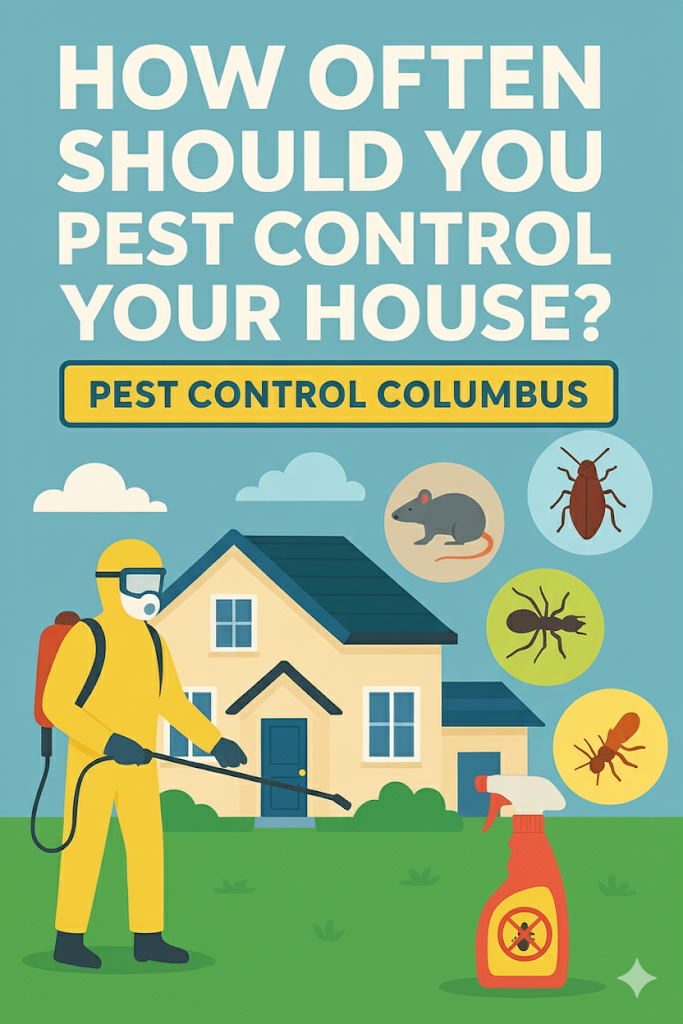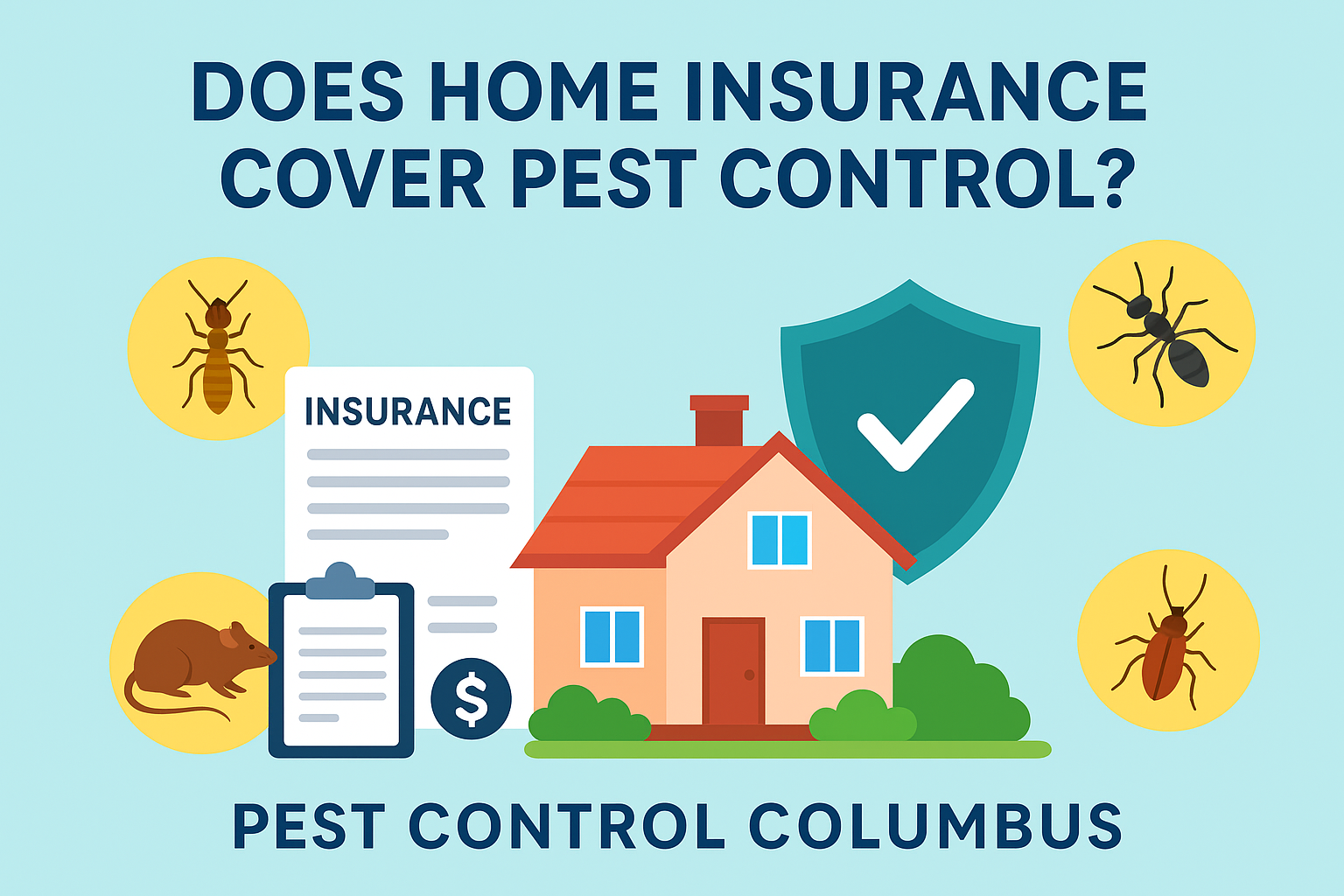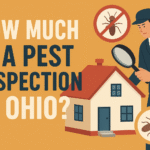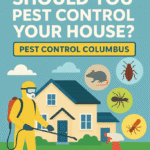Keeping your home free from pests is important for both comfort and safety. Pests such as ants, cockroaches, termites, and rodents are more than just a nuisance. They can damage your property and even affect your health. Homeowners in Columbus often ask how often they should schedule pest control treatments. With the right plan from Pest Control Columbus, you can protect your home year-round. The frequency of treatments depends on several factors, including the type of pest, your home’s location, the severity of infestations, past pest issues, and seasonal changes. Understanding these factors will help you create an effective pest control plan.
Factors That Determine Pest Control Frequency
1. Type of Pest
Different pests have different life cycles and habits, which affect how often treatments are needed. For example:
- Termites: These wood-destroying insects often require yearly inspections and preventive treatments to safeguard your home.
- Cockroaches and ants: These pests reproduce quickly and may need monthly or quarterly treatments, especially in areas prone to infestations.
- Rodents: Rats and mice can appear suddenly and multiply fast, so timely intervention is essential.
Knowing which pests are common in your area will help determine the right treatment schedule for your home.
2. Location and Environment
Your home’s surroundings play a big role in pest activity. Homes located near wooded areas, water sources, or in humid environments are more likely to face infestations. Warm temperatures and high humidity promote insect activity, making regular pest control necessary. In Columbus, seasonal changes can also affect pest behaviour, with spring and fall often seeing higher activity levels.
3. Level of Infestation
The severity of a pest problem also affects treatment frequency.
- Severe infestations: Homes with heavy pest activity may need monthly or bi-weekly treatments until the issue is resolved.
- Moderate infestations: Quarterly treatments are usually sufficient to manage pests and prevent escalation.
- Low-risk homes: If your property has minimal pest activity and preventive measures are in place, yearly treatments may be enough.
4. Previous Infestations
Homes that have faced pest problems in the past are often more vulnerable to future infestations. Preventive pest control can help reduce the risk and keep your home protected over time.
5. Seasonal Factors
Pest activity changes throughout the year. Spring and fall are often peak periods for pests like ants, termites, and rodents. Summer can also bring challenges with insects such as mosquitoes and wasps. Adjusting your pest control schedule according to seasonal activity helps prevent infestations before they become serious.
General Guidelines for Pest Control Frequency
While every home is different, the following guidelines can help homeowners plan treatments:
- Quarterly treatments: Ideal for most homes with moderate pest activity. This schedule keeps a consistent barrier against pests and addresses small problems before they grow.
- Monthly treatments: Recommended for homes in high-risk areas or with ongoing infestations. Frequent visits help control pests and reduce potential damage.
- Annual treatments: Suitable for low-risk homes, recently treated properties, or well-maintained neighbourhoods.
Consulting a professional pest control service like Pest Control Columbus will help you determine the schedule that fits your home best.
Signs You Need Pest Control
Even if you have a regular treatment schedule, it’s important to stay alert for signs of pests. Addressing issues early can prevent bigger problems. Common indicators include:
- Rodent or insect droppings
- Damage to wood, furniture, or plants
- Chewed wires or insulation
- Sightings of live pests inside or outside your home
Ignoring these signs can lead to costly repairs and more extensive infestations.
Benefits of Professional Pest Control in Columbus
Hiring a professional service, such as Pest Control Columbus, ensures your home receives safe and effective treatments. Benefits include:
- Expert assessment: Professionals can identify the type of pests and evaluate the level of infestation.
- Customised treatment plans: Your home gets a plan designed specifically for your needs.
- Safe and effective products: Professional-grade products are more effective and are applied safely.
- Ongoing monitoring: Regular visits help catch new pest activity early and prevent reinfestation.
Preventive Measures at Home
In addition to professional treatments, you can reduce pest risks by taking these steps:
- Seal cracks and gaps in doors, windows, and foundations.
- Store food in airtight containers and clean up spills promptly.
- Maintain a clean yard, remove standing water, debris, and overgrown vegetation.
- Inspect basements, attics, and crawl spaces regularly for signs of pests.
Combining these habits with scheduled pest control treatments provides the most effective protection.
Conclusion
How often you need pest control in Columbus depends on the type of pest, location, past infestations, seasonal activity, and current infestation levels. For most homes, quarterly treatments work well, but high-risk or heavily infested properties may require monthly visits, while low-risk homes may only need yearly preventive care.
The key to keeping your home pest-free is vigilance, preventive measures, and professional support. Pest Control Columbus can assess your home, recommend a treatment plan, and provide ongoing services to protect your home year-round.
FAQs
Q1: Can I handle pest control myself, or should I hire a professional?
A: DIY methods can help with minor issues, but professional pest control ensures long-term prevention, effective treatment, and safety. Professionals can address severe infestations that DIY solutions cannot.
Q2: How long does each pest control treatment last?
A: Duration depends on the type of treatment and pest. Most treatments provide protection for several weeks to months, so recurring visits are often needed.
Q3: Are pest control chemicals safe for pets and children?
A: Licensed professionals use products that are safe when applied correctly. They follow strict guidelines to minimise exposure and provide instructions for precautions.
Q4: How quickly should I act if I notice pests?
A: Immediate action is recommended. Prompt treatment prevents infestations from spreading and reduces potential damage.
Q5: Does pest control cover all types of pests?
A: Professional services usually cover a wide range of pests, including insects, rodents, and termites. Some specialised treatments may be needed for certain species.







